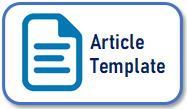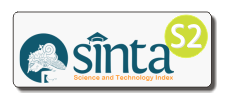Spiritual Marketing in Increasing Sales Turnover of Micro, Small, and Medium Enterprises in Indonesia
DOI:
https://doi.org/10.14421/grieb.2022.102-06Keywords:
Spiritual Marketing, MSMEs, Sales TurnoverAbstract
The increasing diversity of modern humans has implications for changes in consumer behavior. Previously, consumers solely relied on logical considerations when selecting products or services, but now this framework has been shifted to encompass broader considerations. This trend forces a shift in the marketing paradigm; from rational marketing to emotional marketing, even continuing to spiritual marketing. This article seeks to examine the implementation of spiritual marketing to increase the sales turnover of Micro, Small, and Medium Enterprises (MSMEs) in Indonesia, with a case study of “Komunitas Bubur Sedekah” in Setabelan Banjarsari, Surakarta. This case study applied Hermawan Kertajaya's spiritual marketing theory as a theoretical framework. Data were obtained through in-depth interviews, observation, and documentation. In-depth interviews were held with advisors, porridge sellers, almsgivers, and customers. Observations were conducted to capture data from the porridge business activities. Meanwhile, documentation was utilized to collect data from various social media platforms belonging to the community. The findings of the study indicate that “Bubur Sedekah” is a manifestation of spiritual marketing because it is grounded in ethical spiritual principles, such as theistic, humanistic, and contextual values that bring satisfaction to customers, thus resulting in regular donations. Consequently, the sales turnover of “Bubur Sedekah” has considerably increased, and the sustainability of their business is now assured.
References
Ahmed, S., & Rahman, M. H. (2015). The effects of marketing mix on consumer satisfaction: A literature review from Islamic perspectives. Turkish Journal of Islamic Economics, 2(1), 17–30. http://dx.doi.org/10.15238/tujise.2015.2.1.17-30
Amalia, S. (2019). Hakekat agama dalam perspektif filsafat perenial. Indonesian Journal of Islamic Theology and Philosophy, 1(1), 1–18. http://doi.org/10.24042/ijtp.v1i1.3903
Ardin, A., & Hidayat, R. A. (2020). Strategi pengembangan UMKM meubel di Kota Bengkulu. Jurnal Akuntansi, Keuangan dan Teknologi Informasi Akuntansi, 1(1). https://doi.org/10.36085/jakta.v1i1.825
Clark, T., Foster, L., Bryman, A., & Sloan, L. (2021). Bryman's social research methods. Oxford University Press.
Dakhoir, A. (2019). The fatwa authorities of National Syaria Council of Majelis Ulama Indonesia in supporting The principle of syariah compliance. Journal of Legal, Ethical and Regulatory Issues, 22(1). http://digilib.iain-palangkaraya.ac.id/id/eprint/1462
DiMaggio, P. J., & Powell, W. W. (1983). The iron cage revisited: Institutional isomorphism and collective rationality in organizational fields. American sociological review, 48(2), 147–160.
Fahamsyah, M. H. (2020). Spiritual marketing Gontor dalam mempertahankan positioning. TSAQAFAH, 16(1), 147-162. https://doi.org/10.21111/tsaqafah.v16i1.4337
Grant, A. (2014). Give and take pendekatan revolusioner untuk mendapatkan kesuksesan (terj.). Kompas Gramedia.
Gurrea-Martínez, A. (2021). Implementing an insolvency framework for micro and small firms. International Insolvency Review, 30(S1), S46–S66. https://doi.org/10.1002/IIR.1422
Habiburahman, Alam, I. A., Dunan, H., & Haninun. (2019). MSMEs empowerment and development strategy model. Journal of Advanced Research in Dynamical and Control Systems, 11(12). https://doi.org/10.5373/JARDCS/V11I12/20193209
Hadiyati, E., & Mulyono, S. (2017). 48 Model of MSME’s competitiveness and performance excellent product in Indonesia: An approach of government policy. International Journal of Business and Social Science, 8(2), 99-108.
Hidayat, K., & Nafis, M. W. (2003). Agama masa depan: Perspektif filsafat perennial. Gramedia Pustaka Utama.
Hindarsah, I. (2021). The influence of service quality, emotional marketing, and spiritual marketing on customer satisfaction. Turkish Journal of Computer and Mathematics Education (TURCOMAT), 12(3), 3685-3689. https://doi.org/10.17762/turcomat.v12i3.1650
Hussnain, S. A. (2011). What is Islamic marketing? Global Journal of Management and Business Research, 11(11).
Kadirov, D. (2021). Marketing Islamic services: Tackling misconceptualisation of commercial insurance. Journal of Islamic Marketing, 12(2), 264–279. https://doi.org/10.1108/JIMA-08-2019-0172
Kartajaya, H., & Siela, M. S. (2006). Syariah marketing. Mizan Pustaka.
Kemenkop UKM. (2019). Perkembangan data usaha mikro, kecil, menengah dan usaha besar (UB) tahun 2018-2019. https://www.kemenkopukm.go.id/uploads/laporan/1617162002_SANDINGAN_DATA_UMKM_2018-2019.pdf
Khaidir, P. H. (2003). Teologi kaum tertindas: Sajak ber-Islam untuk praktis keadilan sosial. Jurnal Ilmiah Bestari, XVI(35).
Khaldun, I. (1986). Muqaddimah terj. Ahmadi Thaha. Pustaka Firdaus.
Khatoon, J. (1977). The place of God, man and universe in the philosophic system of Iqbal (II). Industrial Printing Press.
Klymentova, O., & Soroka, O. (2022). Ukrainian Christian marketing: Communications, verbal positioning of religious services and goods. Ezykov Svyat, 20(2), 216–225. https://doi.org/10.37708/ezs.swu.bg.v20i2.6
Kotler, P., Kartajaya, H., & Setiawan, I. (2010). Marketing 3.0: From product to customer to the human spirit. John Wiley & Sons, Inc.
Kumar, V., Jain, A., Rahman, Z. & Jain, A. (2014). Marketing through spirituality: A case of Patanjali Yogpeeth. Procedia: Social and Behavioral Sciences, 133, 481–490. https://www.doi.org/ 10.1016/j.sbspro.2014.04.215
Manampiring, H. (2018). Filosofi teras, filsafat Yunani kuno untuk mental tangguh masa kini. Kompas Gramedia.
Miles, M. B., & Huberman, M. A. (1998). Qualitative data analysis: A source book af new methods. SAGE Publication.
Nordhagen, S., Igbeka, U., Rowlands, H., Shine, R. S., Heneghan, E., & Tench, J. (2021). COVID-19 and small enterprises in the food supply chain: Early impacts and implications for longer-term food system resilience in low- and middle-income countries. World Development, 141. https://doi.org/10.1016/J.WORLDDEV.2021.105405
Prakoso, J. P. (2020). Survei LIPI: Lebih dari 70 persen UMKM alami penurunan omzet. konomi.bisnis.com/read/20201217/9/1332480/survei-lipi-lebih-dari-70-persen-umkm-alami-penurunan-omzet
Ridwan, R., Z. M. F. (2021). Indonesia sharia economic legislation as a legal frame post reformation. Journal of Legal, Ethical and Regulatory Issues, 24(2), 1–13.
Rini, E. S., & Absah, Y. (2017). Rational, emotional and spiritual marketing strategies in Shariah banking in Medan, Indonesia. Banks and Bank Systems, 12(2), 68-77. https://doi.org/10.21511/bbs.12(2).2017.07
Rumiana, A. G. (2016). Analisis turunnya omset penjualan usaha pengrajin perak di Desa Nagasipaha Kecamatan Buleleng Kabupaten Buleleng. Jurnal Program Studi Pendidikan Ekonomi (JPPE), 7(2).
Swastha, B. (1989). Manajemen penjualan. BPFE.
Triatmo, A. W. (2019). Tanggung jawab sosial dalam pengelolaan zakat, infak, dan sedekah untuk pemberdayaan masyarakat miskin. Sebelas Maret University.
Triatmojo, D. (2021, March 27). Kemnaker: 29,4 juta pekerja terdampak pandemi Covid-19, di-PHK hingga dirumahkan. Tribun Bisnis. https://www.tribunnews.com/bisnis/2021/03/27/kemnaker-294-juta-pekerja-terdampak-pandemi-covid-19-di-phk-hingga-dirumahkan
Nurhadi. (2021, October 12). 10 negara dengan penduduk muslim terbanyak di dunia. Tempo.Co. https://dunia.tempo.co/read/1516427/10-negara-dengan-penduduk-muslim-terbanyak-di-dunia
Downloads
Published
Issue
Section
License

This work is licensed under a Creative Commons Attribution-ShareAlike 4.0 International License.
Global Review of Islamic Economics and Business is licensed under a
Creative Commons Attribution-ShareAlike 4.0 International License



















